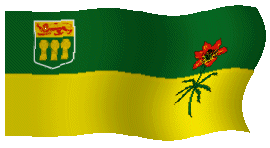
Saskatchewan


AMERICAN DOG TICK
Dermacentor variabilis
Feeds on: Typically feeds on mid-sized mammals including dogs, raccoons, porcupines and black bears, and also readily feeds on humans.(1)
Pathogens transmitted: Though the potential for contracting a tick-borne disease from this species is thought to be relatively low, it is known to carry Borrelia burgdorferi (Lyme disease), tularaemia, Rocky Mountain spotted fever, and cause tick paralysis. It is also known to infect wild and domestic cats with the fatal protozoan Cytauxzoon felis, and horses with equine piroplasm, Babesia caballi, and Ehrlichia risticii, the causative agent of Potomac horse fever.(1)

ROCKY MOUNTAIN WOOD TICK
Dermacentor andersoni
Feeds on: This species of tick will feed on pretty much anything it encounters, including horses, domestic cattle, wild goats and sheep, coyotes, porcupines, rabbits, grizzly bears, deer, moose, marmots, squirrels, various bird species, dogs, and humans.(1)
Pathogens transmitted: Carries tularaemia, Rocky Mountain spotted fever (Rickettsia rickettsii), Colorado tick fever, Powassan Virus, and causes tick paralysis.(1)

IXODES ANGUSTUS
Ixodes angustus
Feeds on: Wide distribution throughout Canada and the rest of North America makes this tick one of the most commonly encountered. Ixodes angustus typically feeds on rodents and small animals including cats and dogs, and though it is less common it is also known to bite humans.(1)
Pathogens transmitted: Carries and is a competent vector of Borrelia burgdorferi (Lyme disease), and Babesia microti.(1)

RABBIT TICK
Haemaphysalis leporispalustris
Feeds on: As inferred from its common name this abundant species of tick most commonly feeds on rabbits and hares, however, it also feeds on a variety of birds, with less common accounts of feeding on larger mammals and humans.(1)
Pathogens transmitted: Rickettsia canadensis, Rocky Mountain spotted fever (Rickettsia rickettsii) Borrelia burgdorferi (Lyme disease), with the potential to disseminate other pathogens as a result of its association with birds regularly infested by blacklegged ticks.(1)

